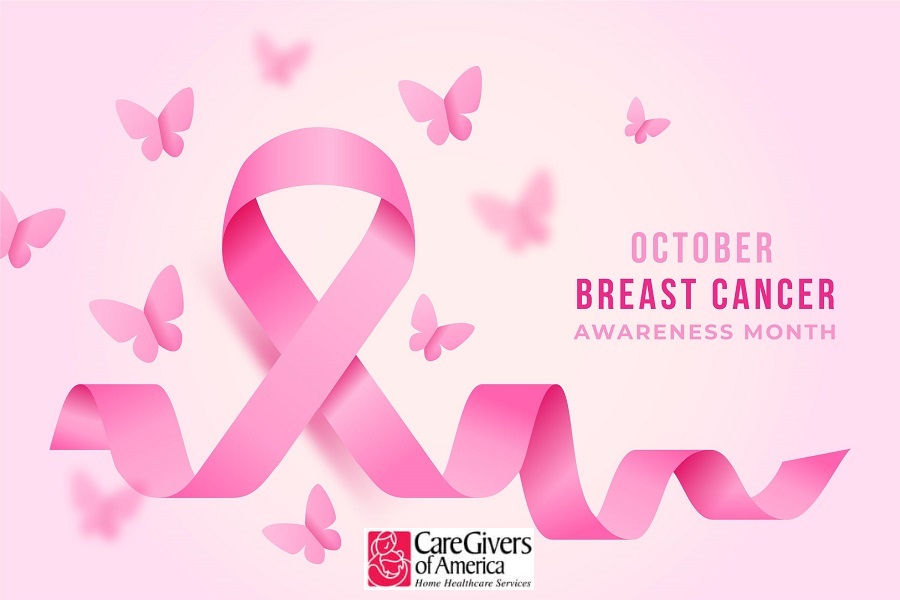Today is National Metastatic Breast Cancer Awareness Day and October is Breast Cancer Awareness month. Most if not all of us know someone who has battled this disease. But are there special implications or risks for seniors?
Table of Contents
6 Breast Cancer Facts
With all the people who have been afflicted, most people in the U.S. seem to have a good general understanding of breast cancer. But what are some lesser known facts of this disease?
- Isn’t only women who can suffer from this disease; men can get breast cancer too.
- One-third of women diagnosed are over aged 70.
- Age is actually one of the biggest risk factors – the median age of patients is 62
- Regardless of age, independent, active and overall healthy patients have the best chance of a good outcome with after treatment.
- You can get tested for the genetic variants that increase your likelihood of getting cancer.
- Maintaining a healthy weight can reduce your breast cancer risk.
How is it different for seniors?
The research shows us that while there doesn’t seem to be increased risk (except due to age alone) or a difference in the actual biology of the cancer in patients over 65. There is however a difference in how a patient responds to treatment, that does include some age factors.
As mentioned above, healthy, active and independent patients respond better to treatment overall. If there are two elderly cancer patients, one who is independent and basically healthy overall and another who a homebody, perhaps overweight and has other medical conditions, the active and healthy patient will fare better during treatment.
Older patients are also predisposed to a higher risk of side effects of treatment. The Breast Cancer Research Foundation says, “Older patients can respond to treatment differently. Chemotherapy, for example, requires a balance of providing the standard of care at recommended doses while monitoring potential toxicities (such as congestive cardiac failure and osteoporosis) and impact on quality of life. While elderly people with breast cancer are at a greater risk of side effects and treatment-related mortality, undertreatment at any age is linked to poor outcomes.
Older adults are often excluded from clinical trials, which form the basis of standards of care. This can be based on an eligibility cutoff age or a restriction to only include healthier patients. The result is a lack of clear, evidence-based guidelines on how to treat breast cancer in this group.
“Understanding how toxicities of cancer therapies will affect older patients remains an unanswered question,” said Dr. Hyman Muss, BCRF investigator and director of geriatric oncology at the Lineberger Comprehensive Cancer Center at the University of North Carolina.”
Senior patients are also likely to encounter trouble finding aggressive treatments that younger patients often have offered to them. The National Library of Medicine says, “Although we could expect that the elderly will be treated with similarly intensive treatment as applied in younger age groups, the elderly patients with breast cancer are frequently undertreated, even after adjustment for confounding factors, such as comorbidities, need for social support, and functional status.
Elderly women are less likely to undergo breast conserving therapy and axillary lymph node dissection; radiation therapy (RT) is more likely to be omitted after breast conserving surgery and elderly patients also less frequently receive systemic therapy, particularly chemotherapy. In contrast, the use of adjuvant hormonal therapy has been reported to be independent of patient age.
The reasons for these differences in approach to the care of older patients are probably multifactorial and may include a higher rate of patient comorbidities, poorer performance status, limited social support, difficulty with transportation, patient or family preference, concerns about quality of life, lower life expectancy. In addition, because so few research studies have included older women, the lack of available evidence may also lead to less aggressive care.”
Wrap Up
Understanding that age is a factor in increased risk, the best thing to do is eat well and get, be or stay active. Eating a clean diet (heart healthy is a plus!) and managing independent activity as much as possible. If you have any questions about anything health related, speak with your family medical professional.
~ ~ ~
Do you have questions about how you can better support your loved one while they age in place in South Florida or regarding homecare in general? Please contact CareGivers of America here: Click here to contact us or call us toll free: 800-342-4197
Our amazing mailing list is where you’ll receive special content, click here to join the mailing list.
*No information in this article is to be taken as advice, medical or otherwise. This post is not sponsored, but may contain external links to websites, articles or product examples. External links are used for example or reference purposes only and these links do not indicate specific product or website endorsement by CareGivers of America.



